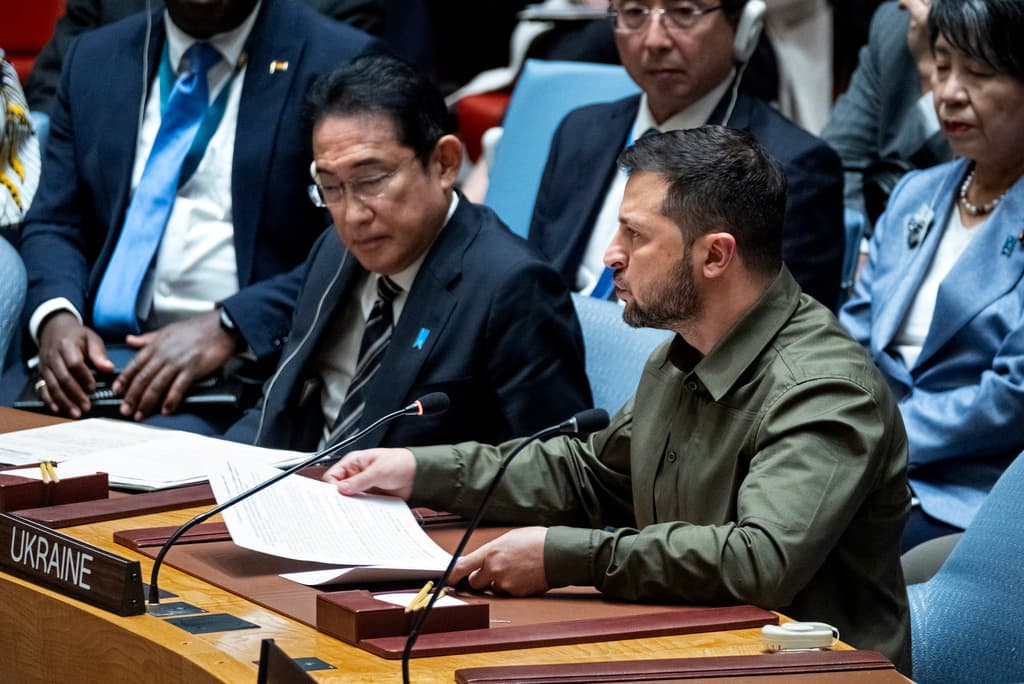Zelensky Skewers the United Nations as ‘Ineffective,’ Dresses Down the Security Council in Barbed Address
‘Humankind no longer pins its hopes on the UN,’ President Zelensky declares.

The United Nations Security Council is no match for Europe’s most consequential war in decades, the Ukrainian president, Volodymyr Zelensky, told members of the council at its headquarters on Wednesday, dubbing the council’s attempt at ending the war “ineffective.”
If one needed an example of the UN’s most powerful body’s struggling to be effective, the session provided one, starting with a long procedural debate about when Mr. Zelensky would be allowed to speak. Eventually, Mr. Zelensky took the stage.
“Humankind no longer pins its hopes on the UN when it comes to the defense of the sovereign borders of nations,” he asserted, admonishing the alliance for pursuing “rhetoric rather than real solutions” in the second year of fighting in Ukraine.
As the UN’s body charged with maintaining global peace and security, the Security Council, on paper, allows its members to sanction or impose other measures against violators of its constitutive instrument, the UN Charter. Yet the council’s five permanent members — America, Communist China, France, Russia, and Britain — have the power to veto any such action.
“It is precisely inequality that renders the UN ineffective,” Mr. Zelensky proclaimed. “The current UN system makes you less influential than the veto power possessed by a few and misused by one: Russia.” Moscow has vetoed several proposed Security Council resolutions condemning its war in Ukraine.
The Ukrainian president pressed for reforming the charter so that the General Assembly would have the power to overcome the veto by “a global qualified majority,” arguing that “veto rights should not serve those who are obsessed with hatred and war.”
Mr. Zelensky called on the council to update its membership in a way that would better reflect today’s global power balance.
In contrast to Mr. Zelensky, Secretary Blinken praised the current multilateral structure. Yet, like the Ukrainian president, he called for a temporary suspension of Russian membership, which, he said, would signal “to all would-be aggressors that we will stand up, not stand by, when the rules we all agree to are being challenged.”
To the Russian minister of foreign affairs, Sergei Lavrov, though, the veto is an “absolutely legitimate instrument.” Instead, he blamed America and its allies for instigating the war. International instability, he said, stems from the West’s “parochial” and “neo-colonialist” activities.
Even as officials pointed their fingers at each other, they suggested that the Security Council, as it stands, is unequipped to manage geopolitical conflict. The spirit of stalemate was set during a procedural dispute at the start of the session.
The Russian ambassador to the United Nations, Vassily Nebenzya, insisted that Ukraine, as a nonmember of the council, should not be allowed to speak before member nations, to which the prime minister of Albania, Edi Rama, retorted: “There is a solution: You stop the war and President Zelensky will not take the floor.”

